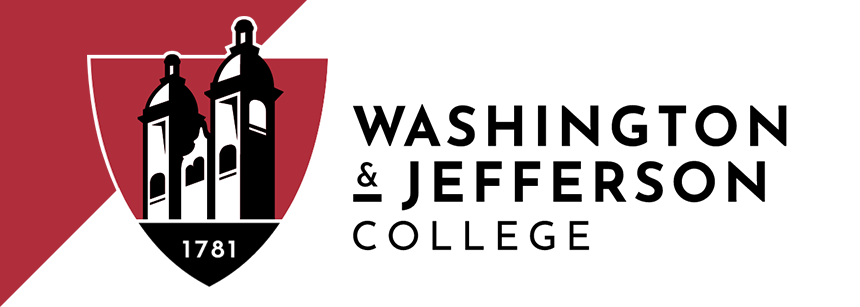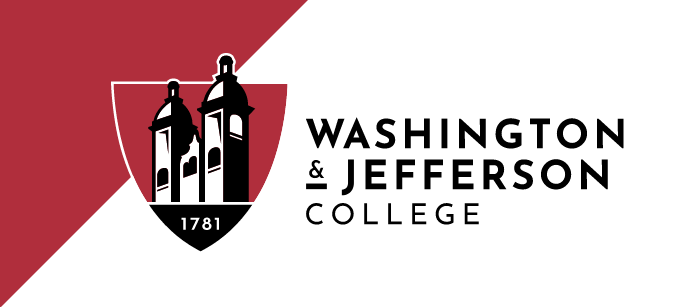WASHINGTON, PA (Aug. 23, 2018)—Washington & Jefferson College (W&J) Professor and Department Chair of History W. Thomas Mainwaring, Ph.D., has spent the last 25 years separating fact from fiction in local Underground Railroad lore.
Now, he’s sharing his research in Abandoned Tracks: The Underground Railroad in Washington County, Pennsylvania, published in April 2018 and available from the University of Notre Dame Press or on Amazon.com.
“I’m hoping this will be something that will become a guide to understanding the local history and background around the Underground Railroad,” Dr. Mainwaring said.
Dr. Mainwaring began his research while serving on the board of the Washington County Historical Society, which meets in the house of well-known local abolitionist F. Julius LeMoyne. He made it his mission to debunk rumors and promote the truth of Washington County’s history.
“There is a tendency on the part of some local historians and others to exaggerate or invent facts to make the Underground Railroad seem like a huge enterprise,” Dr. Mainwaring said. “… [B]ut the reality is that escaping from slavery was very difficult and the numbers were very small.”
One example of how local stories have exaggerated the numbers of fugitive slaves and means of escape centers around Matthew McKeever of West Middletown. McKeever’s house was a stop on the way to freedom. In 1880, McKeever told a local newspaper that the most people he sheltered on his property at any one time was eight. After his death, however, neighbors inflated that number, claiming that he had harbored dozens fugitive slaves. These neighbors also spread tales of a secret trap door and underground tunnel as clandestine hiding places on McKeever’s property, whereas McKeever only acknowledged using an ordinary sheep shed as a place of concealment.
Rumors have even touched the W&J campus. Dr. Mainwaring remembers talking with a former student who was led to believe his fraternity house had been a stop along the Underground Railroad. The problem with that story, Dr. Mainwaring pointed out, is that the house was not built until after World War II.
“There is a fascination people have with the Underground Railroad being literally underground—a network of trap doors and tunnels—which is simply not true,” Dr. Mainwaring said. “Think of the Underground Railroad chiefly as a network of people. It’s not the hiding places; it’s the people who constitute the Underground Railroad.”
Dr. Mainwaring’s research uncovered many fascinating true stories, including that a network of African Americans living in the area assisted fugitive slaves during their escape. A pamphlet published in 1903 by Howard Wallace, a free black man whose family maintained an Underground Railroad station in Washington County, was one of the few sources known previously. Mainwaring has greatly expanded on the network of African American participants in the local Underground Railroad.
Abandoned Tracks has received rave reviews from Dr. Mainwaring’s contemporaries.
“In recent years, there has been an outpouring of important new scholarship on the Underground Railroad,” said Matthew Pinsker, Professor of History at Dickinson College. “W. Thomas Mainwaring’s Abandoned Tracks will stand with the best of these efforts as a shining example of carefully researched local history that deftly puts the story of Washington County, Pennsylvania, in the full context of the coming of the Civil War.”
Dr. Mark Swift, also of the W&J faculty, produced the maps that illustrate the Underground Railroad networks discussed in Abandoned Tracks.
Dr. Mainwaring will be talking about his book with the Western Pennsylvania Geneaological Society on Nov. 10. A limited number of tickets are available.
About Washington & Jefferson College
Washington & Jefferson College, located in Washington, Pa., is a selective liberal arts college founded in 1781. Committed to providing each of its students with the highest-quality undergraduate education available, W&J offers a traditional arts and sciences curriculum emphasizing interdisciplinary study and independent study work. For more information about W&J, visit washjeff.dev, or call 888-W-AND-JAY.
Are you ready to be a president? Apply to W&J now.

